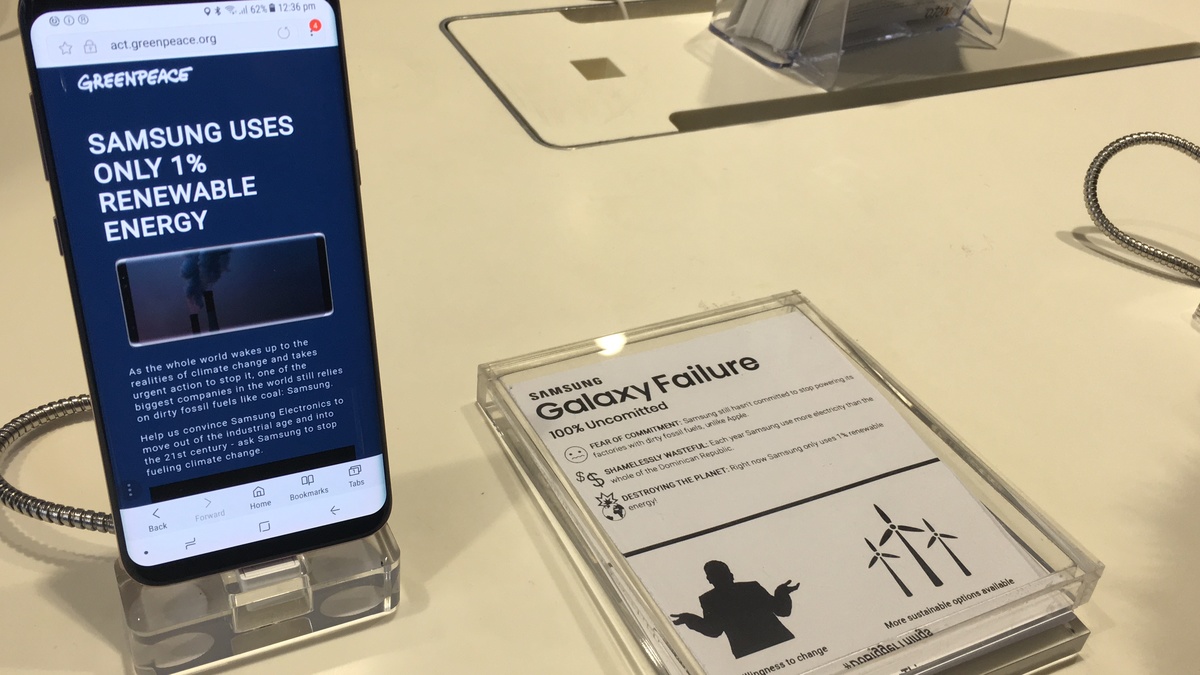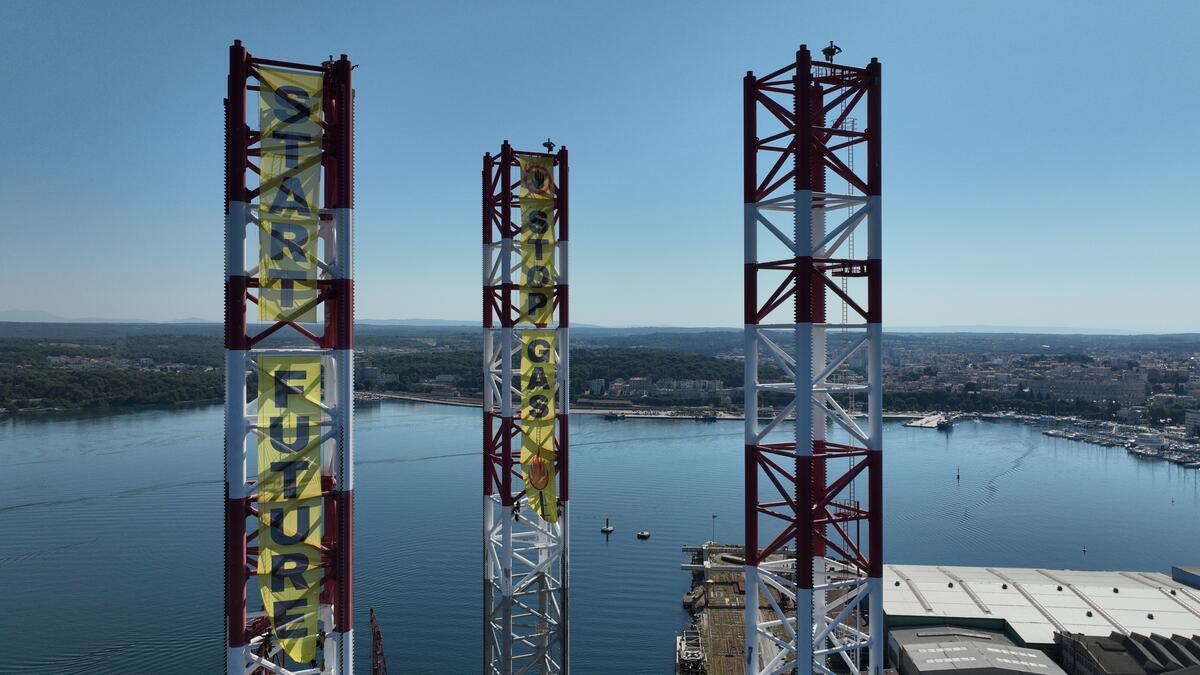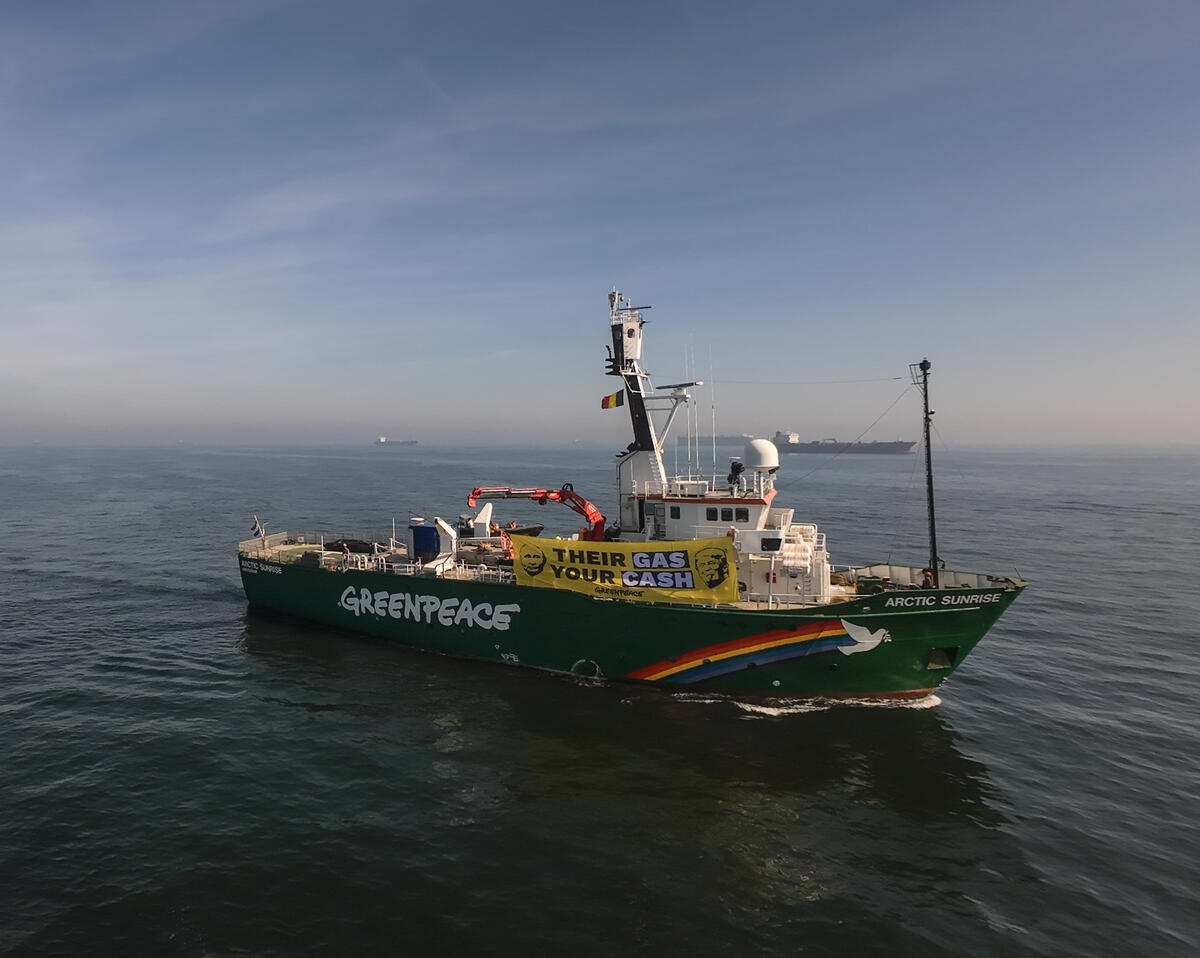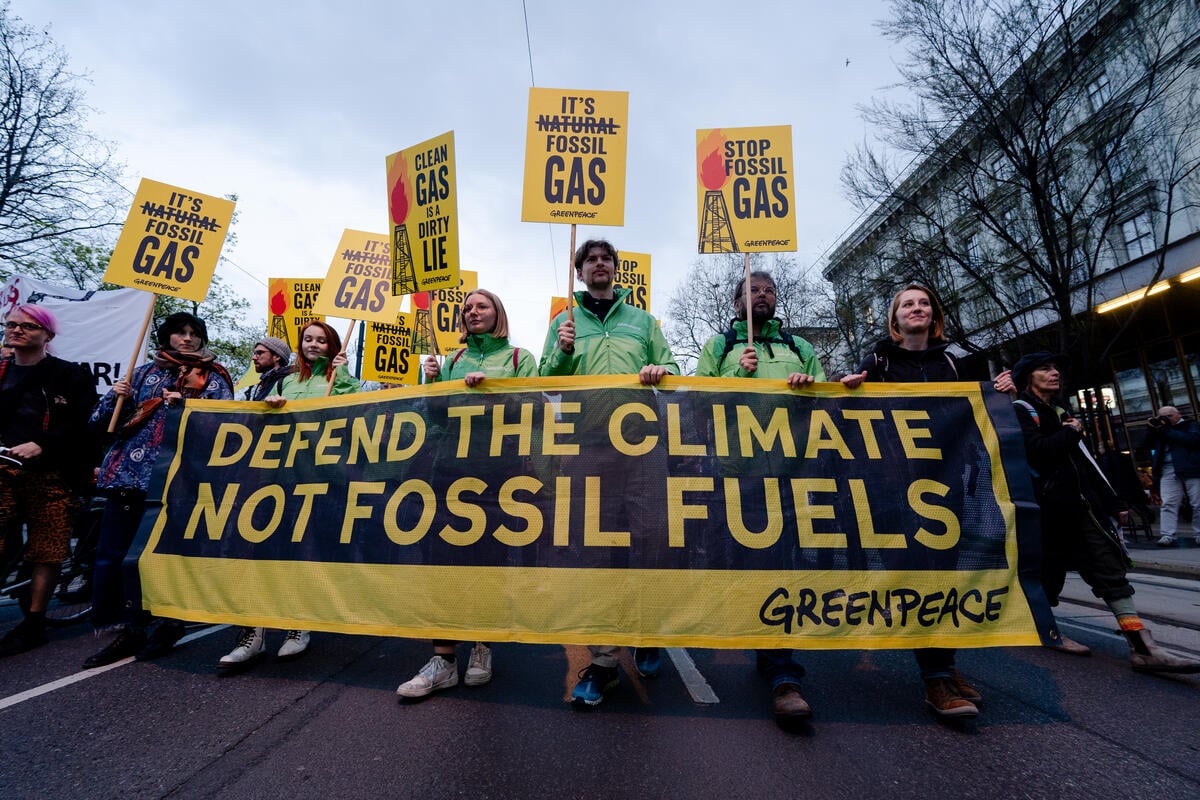It is that time again. Four years roll by and once more the greatest winter athletes in the world will come together to wow us on death-defying luge runs, courageous ski jumps or surprisingly mesmerising curling slides matches.
Unfortunately, all is not well in this winter wonderland.
In preparations for these games, many Olympians have been faced by changing slopes – forced to search the world for places with the right conditions for them to train.
Meanwhile, a recent study by Dr. Daniel Scott from the University of Waterloo, Ontario, found that nine previous and future Winter Olympic cities may soon be too hot to host the games due to rising temperatures.
The impacts of climate change, that once seemed so far away, are here. And they are only going to get worse if we continue down the path we are on.
It does make you wonder then, why one of the biggest sponsors of the 2018 Pyeongchang Winter Olympics, Samsung, is still stuck on dirty energy.

Greenpeace UK activists give Samsung’s flagship store on Oxford Street in central London a rebranding makeover to expose the tech giant’s over-reliance on fossil fuels.
Since the 2010 Games, Samsung’s emissions, released from their vast, global supply chain, have risen by a whopping 55%.
Even more shockingly, right now Samsung uses a measly 1% renewable energy. Hardly a gold medal score, this is a laughably underwhelming achievement for a company that spouts out taglines such as “Do What You Can’t” and “Do Bigger Things” without a hint of hypocrisy.
This is in stark contrast to the rest of the world.
Even the Pyeongchang Olympic committee have been proactively communicating their own commitment to be powered by renewables. Six of the venues will run on renewable energy and they have set a target for zero emissions from the games.
While the snow melts and people around the world realise we have no time to lose, Samsung’s CEOs continue to turn a deaf ear. This is not about Greenpeace, it is not about saving face or greenwashing. On the eve of the 2018 Winter Olympics, the world is facing an existential crisis. Never before have we needed action on a truly global scale from all corners to reduce emissions and transition to renewable energy as fast as possible.
However, this is also an opportunity that will set aside the dinosaurs from the innovators. A moment that history will judge us for our actions (or lack of).
Samsung’s CEOs are faced with an opportunity to change course and courageously go beyond business as usual to drastically reduce our emissions and half catastrophic climate change. Do what you can’t?
Robin Perkins is the Global Rethink IT Campaigner at Greenpeace East Asia



